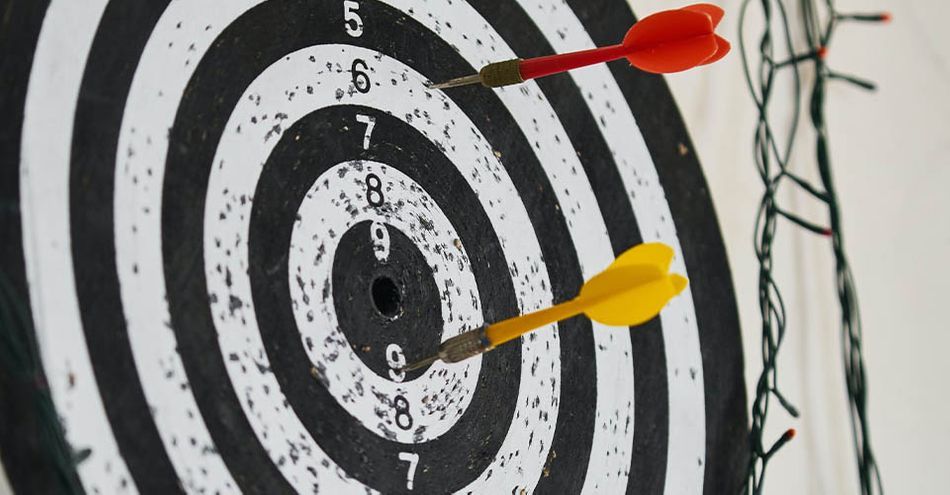Want a foolproof way to set goals, stay motivated, and achieve everything you want?
Do you struggle with sticking to your creative goals? Want a tried-and-true method of tracking ideas, staying creative, and achieving your dreams? Well, all that might be overpromising, but we do have some excellent tips that you can use right now to start making actual progress on your artistic journey.

One of the most challenging things about being an artist is self-motivation. Without some big mean boss staring over your shoulder, it's easy to get distracted by the Internet or TV or existential dread. Fortunately, I've been pushing myself to be more consistent in my creation for years, and I've learned some invaluable tips that I can't wait to share.
In this video, I want to break down some methods I’ve learned over the years on how to achieve your goals and make your dreams come true.
How to Achieve Your Goals and Make All Your Dreams Come True
How to Set Goals as an Artist

So let’s talk about your goals.
What do you want to achieve? And how can you get there? How do you know what you want to achieve? For me, this didn’t become clear until I actually wrote my goals down.
When you're setting goals, you can look to your peers and idols for inspiration. Identify the path you're trying to walk so you at least know which direction to head. Once you have an idea of a goal, it's time to break it down into short and long term targets.

Your long term goals need to be big. If you're on a hike, you're not going to use some small pebble in the distance as a marker; you use a mountain. At the same time, you need to break down your goals into smaller milestones that lead you toward them. I like to set up daily, weekly, monthly, and yearly goals. Each one supports the next, taking me closer to where I want to be.
Don’t underestimate the power of writing. There is something scientifically magical about writing, because while you are writing, while your hand is connected to the paper, your brain is physically not able to focus on anything else. This is according to a scientific study that I made up right now.
How to Track Your Creative Ideas

So let’s try an exercise. All you need is some blank wall space and some post it notes. If you don’t have any post it’s, feel free to write directly on the wall.?
First, let's make a big goal. What is it you want to accomplish this year? Maybe you want to buy a car, or get a new job. When I first did this exercise, my year goal was to go freelance, so that’s going to be my goal here.
Now let's fill in some shorter term goals. This month, I want to make a new YouTube video (check and check).
This week, I need to engage with clients and finish storyboards for my next video. Today, that means I'm reviewing potential leads and sketching my boards.
Your short term goals are smaller segments of the larger goals. By doing your daily tasks, you chip away at the weekly and monthly targets.
It's also important that these goals are actionable—not vague. For example, don’t write “get more clients.” Instead try “get 1 freelance project next month.” As James Clear said, "When making plans, think big. When making progress, think small."
Finally, we're using Post-Its because—sadly—sometimes you won't hit your goals. That's okay! Just move that note down and hit it next time.
Taking Action On Your Creative Projects

Okay so you have some goals, but how do you actually *achieve* them? Well I already told you the scientific importance of writing stuff down. And if you think I’m joking, I want to show you how serious I am.
I keep a notebook in every single room of my house, because my memory is not good and I don’t want to lose any ideas that might come to me: in my office, in my kitchen, in my car, even in my shower. Write down all your ideas, no matter the quality. Keep them synced on a Google Doc. No matter how dumb or insignificant you think it might be, write it down. You never know when you might come back to them and days, weeks, months, or years later one of those dumb ideas might turn into something brilliant.
Now just writing down ideas, of course, isn’t enough. You have to do them. But you are creative, smart, and amazing. So that’s the easy part. The hard part as creatives is putting your stuff—and yourself—out there. This is also the most important part, because if you don’t put yourself out there, no one else is going to find you.
You never know where an opportunity might lead. If you think an idea is good, other people are going to think that idea is good too. The things that you make out of passion, or because you had an idea that you just had to go after, are the things that will have the biggest impact on your career and life. Don’t be afraid of failure / failure is a good thing / if you aren't constantly failing you. No one gets it right on the first try, they have just failed enough times to figure it out that time.
Not everyone is going to like your stuff - and that's okay. There are people who don't like pizza. If there are people who don’t like pizza then you cannot please everyone so there’s no point in trying. Make the things you want to make.
This is a marathon, not a sprint, and the only way you'll fail is if you quit.
Need Help Deciding Your Next Big Goal?
We hope that tutorial pumped you up for your next big project. What are you going to work on next? Where is your career headed? Are you still unsure? Well, maybe we can help out even more. It's time to Level Up.
In Level Up, you’ll explore the ever-expanding field of Motion Design, discovering where you fit in and where you’re going next. By the end of this course, you’ll have a roadmap to help you get to the next level of your Motion Design career.
Take Your Skills Further with The Path to MoGraph
Want to go deeper? Check out The Path to MoGraph, available with School of Motion All-Access.
ENROLL NOW!
Acidbite ➔
50% off everything

ActionVFX ➔
30% off all plans and credit packs - starts 11/26

Adobe ➔
50% off all apps and plans through 11/29

aescripts ➔
25% off everything through 12/6
Affinity ➔
50% off all products

Battleaxe ➔
30% off from 11/29-12/7
Boom Library ➔
30% off Boom One, their 48,000+ file audio library
BorisFX ➔
25% off everything, 11/25-12/1

Cavalry ➔
33% off pro subscriptions (11/29 - 12/4)

FXFactory ➔
25% off with code BLACKFRIDAY until 12/3

Goodboyninja ➔
20% off everything

Happy Editing ➔
50% off with code BLACKFRIDAY

Huion ➔
Up to 50% off affordable, high-quality pen display tablets

Insydium ➔
50% off through 12/4
JangaFX ➔
30% off an indie annual license
Kitbash 3D ➔
$200 off Cargo Pro, their entire library
Knights of the Editing Table ➔
Up to 20% off Premiere Pro Extensions
Maxon ➔
25% off Maxon One, ZBrush, & Redshift - Annual Subscriptions (11/29 - 12/8)
Mode Designs ➔
Deals on premium keyboards and accessories
Motion Array ➔
10% off the Everything plan
Motion Hatch ➔
Perfect Your Pricing Toolkit - 50% off (11/29 - 12/2)

MotionVFX ➔
30% off Design/CineStudio, and PPro Resolve packs with code: BW30

Rocket Lasso ➔
50% off all plug-ins (11/29 - 12/2)

Rokoko ➔
45% off the indie creator bundle with code: RKK_SchoolOfMotion (revenue must be under $100K a year)

Shapefest ➔
80% off a Shapefest Pro annual subscription for life (11/29 - 12/2)

The Pixel Lab ➔
30% off everything
Toolfarm ➔
Various plugins and tools on sale

True Grit Texture ➔
50-70% off (starts Wednesday, runs for about a week)

Vincent Schwenk ➔
50% discount with code RENDERSALE

Wacom ➔
Up to $120 off new tablets + deals on refurbished items



